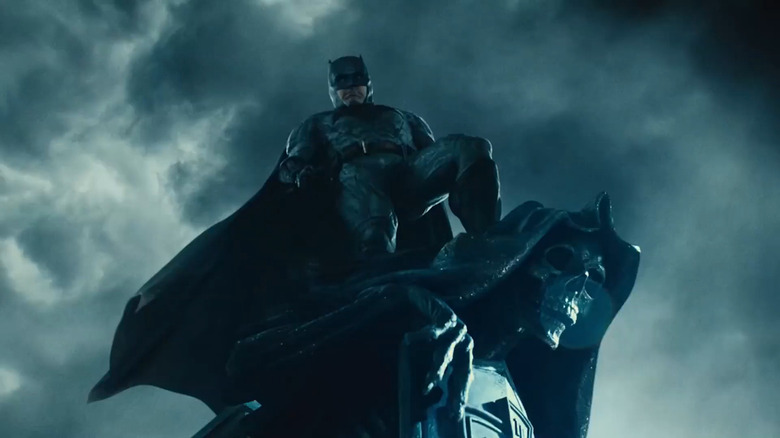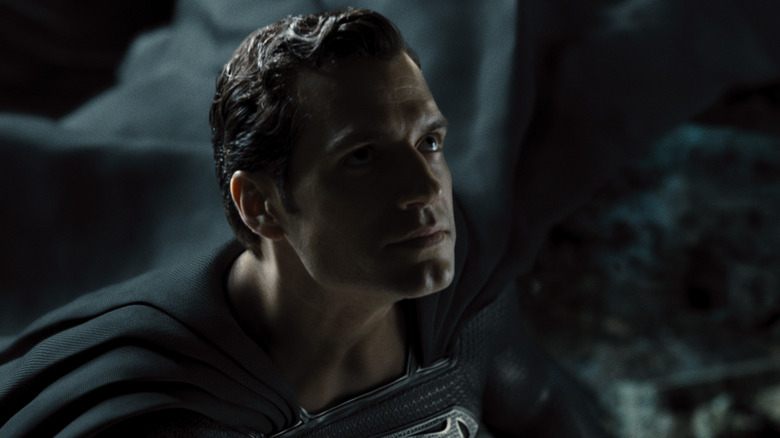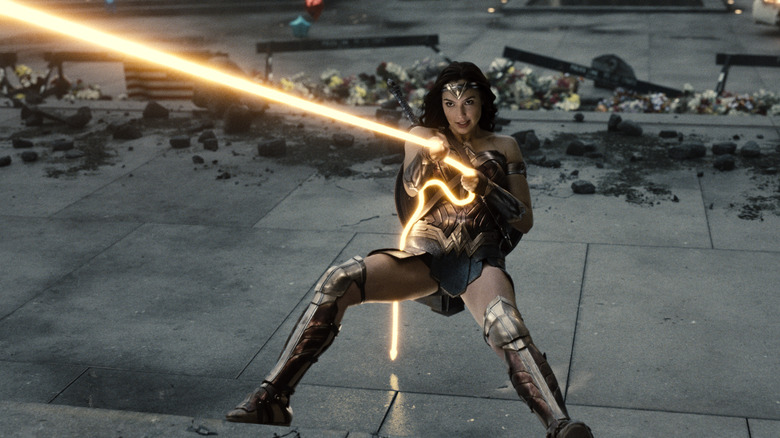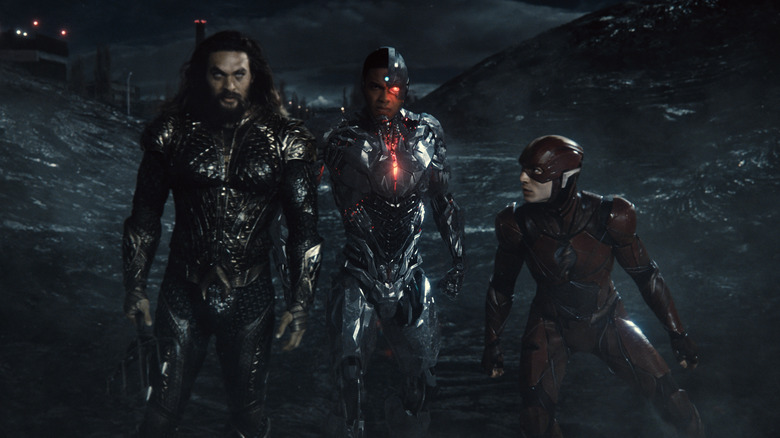What Zack Snyder's Justice League Hitting Digital Says About The Future Of Warner Bros. – And Streaming
Zack Snyder's "Justice League" arrived on HBO Max last year, marking the end of a long, messy journey to see the director's vision for the film realized. No need to rehash history here, but the theatrical version of the movie did not represent what Snyder had in mind. Joss Whedon's pricey reshoots altered the DC Comics adaptation greatly. But now, the world has seen Snyder's version, all four hours of it, conveniently available on a major streaming service, as well as being released on 4K Ultra HD and Blu-ray.
At the time, Warner Bros. invested an additional $70 million or so to get a flashy exclusive for its streaming service. That's no small price, especially when the original movie already lost a ton of money. However, it seems the studio is no longer interested in the exclusivity of it all, as Zack Snyder's "Justice League" is going to be available for the first time on digital starting July 19, 2022.
Own on digital 7/19 #ZackSnydersJusticeLeague pic.twitter.com/Ej8JGudPXE
— Zack Snyder (@ZackSnyder) June 27, 2022
Why is this happening a full year after the film's initial debut on HBO Max, and months after the 4K/Blu-ray release? The answer is, all at once, quite simple and a little complicated. Ultimately, it boils down to money, but it also says a lot about the new direction of the studio and the future of streaming in general.
Warner Bros. Discovery is maximizing revenue
The biggest factor here is the recent merger between WarnerMedia and Discovery, creating Warner Bros. Discovery. David Zaslav is now the CEO, and he has been looking for ways to make the media conglomerate more profitable. Given that he axed the "Wonder Twins" movie because it was too expensive to be made strictly for HBO Max, it seems like he might have not been a fan of spending $70 million to finish a film that had already lost a lot of money. Zaslav is very business-minded in a pure sense, or at least that's the picture that has been painted of him as of late. The movie business is a business, after all.
That being the case, it's no surprise that he would look to capitalize on the investment that is Zack Snyder's "Justice League." More than a year removed, HBO Max probably isn't getting any new subscribers from the film. So making it available on digital might generate some new revenue, especially since Warner Bros. is also offering a trilogy bundle that includes "Man of Steel" and the "Batman v Superman: Ultimate Edition." That's using investments that have already been made to generate revenue, plain and simple.
It's worth pointing out that Zack Snyder's "Justice League" topped the Blu-ray sales charts when it arrived on disc in September of last year, selling a great deal more than anything else available at that time. That helped to make some of the investment back, and it proved that viewers are not only interested in the film but willing to spend money on it beyond an HBO Max subscription. Digital retailers could open it up to an entirely new audience.
Giving viewers plenty of options
This digital release for this film is a signal of a larger strategy being implemented by Warner Bros. Discovery. Yes, HBO Max is still going to be the exclusive streaming service for big films like "The Batman" after they're done in theaters, but that doesn't mean viewers can only watch them with a streaming subscription. For example, aside from a 4K/Blu-ray release, "The Batman" was also available to rent/purchase through digital retailers such as Amazon, Vudu, and Google Play. It also topped those charts, meaning the studio got even more revenue to go along with the box office haul.
At the same time, "The Batman" also performed very well on HBO Max. In other words, Warner Bros. Discovery got to have its cake and eat it too. Big box office, lots of digital rentals/sales, 4K/Blu-ray disc sales for those who wanted it, and a nice boost for HBO Max. Exclusivity, it seems, doesn't matter as much. Giving viewers options, meanwhile, seems to have a positive effect on the bottom line for the overall business. This is not rocket science, but the way in which streaming had dominated Hollywood in recently years, largely thanks to Netflix, made everyone believe that exclusivity was the key. Maybe it isn't anymore.
The Netflix model is no longer the only model
Ultimately, Netflix's success is what forced the rest of the industry to pivot to streaming. Netflix's model was somewhat simple: make exclusive content that can only be streamed on Netflix, thus attracting subscribers which means more money. Simple enough. But as more streaming services has popped up (Prime Video, HBO Max, Hulu, Peacock, Paraount+, and many others), consumers have, arguably, too many choices. In many cases, exclusivity might be a barrier to entry these days.
At this time, many viewers probably won't want to add another subscription service to their lineup if there's just one thing they want to watch, like Zack Snyder's "Justice League." So instead of forcing them into a subscription, why not offer them a choice? Don't want to subscribe? Cool! We'll happily take your $20 digital purchase. Paramount+ similarly did this with hits such as "Scream," "Jackass Forever," and "The Lost City." All performed well at the box office. All of them stream exclusively on Paramount+. But all were also available on digital/VOD, which resulted in more revenue. This is increasingly becoming the model.
The Netflix model of exclusivity being king is no longer the only model. Companies like Warner Bros. Discovery want to maximize revenue and, in an age filled with so much content, making things easy on potential viewers is key. Having options is easy. Zack Snyder's "Justice League" getting a digital release after all this time is emblematic of larger changes in the industry.



